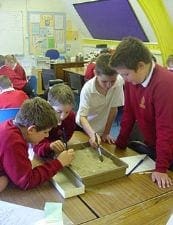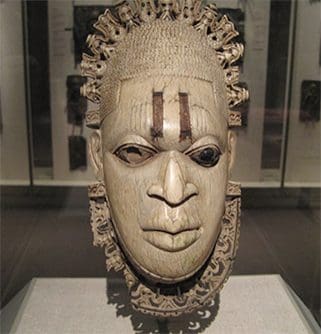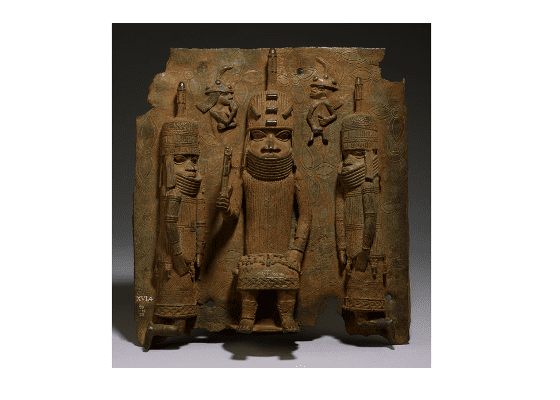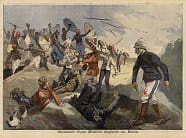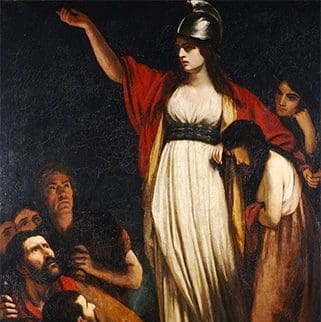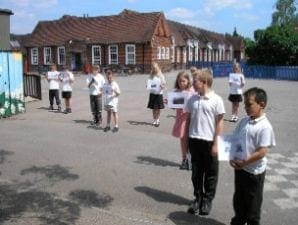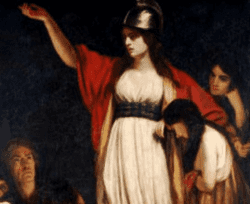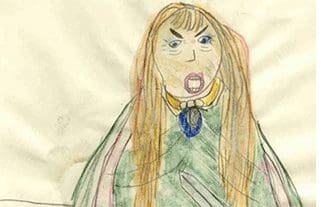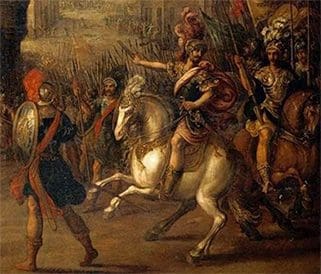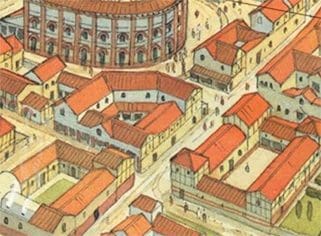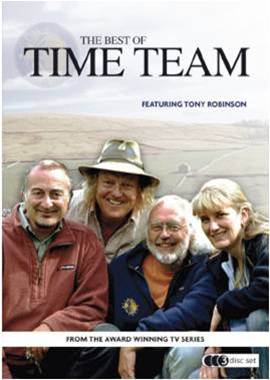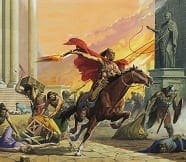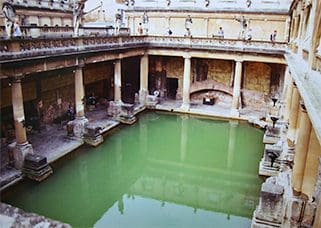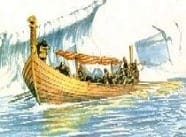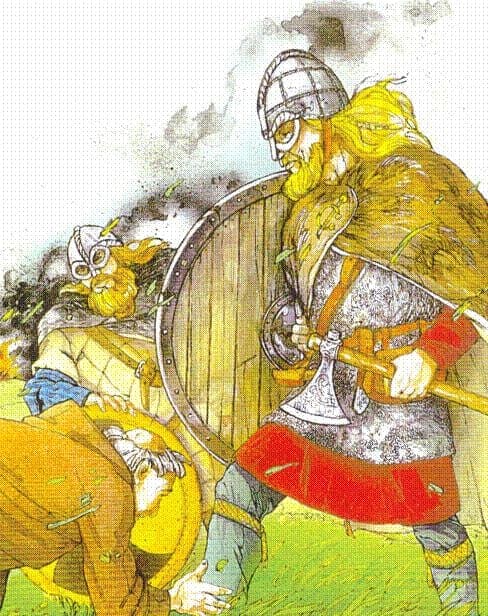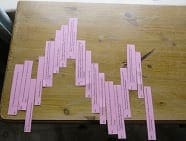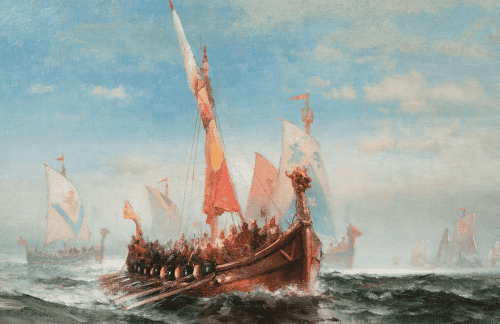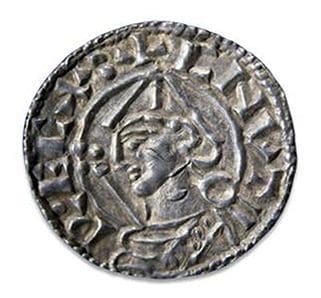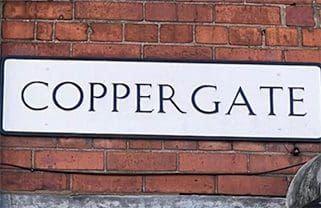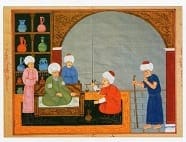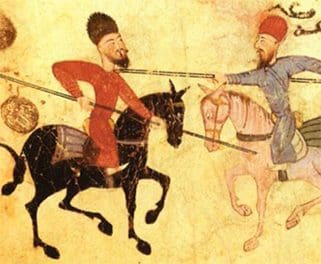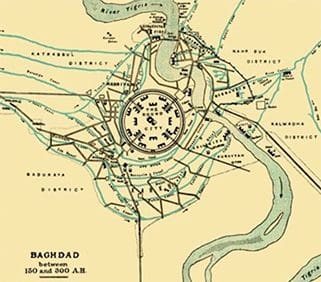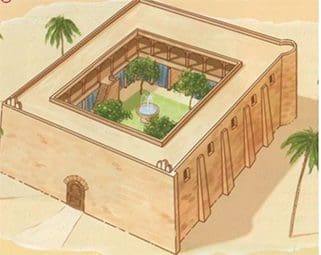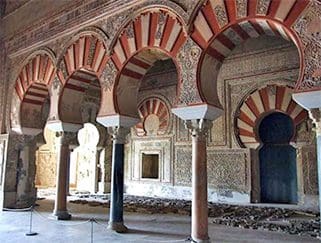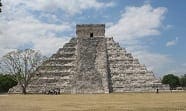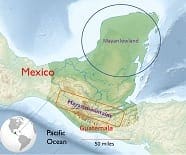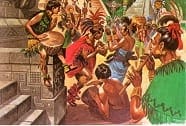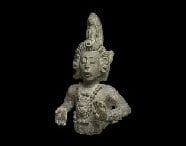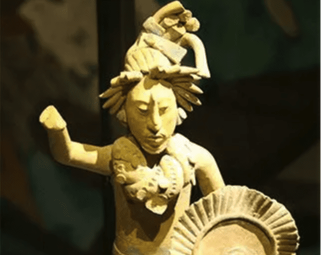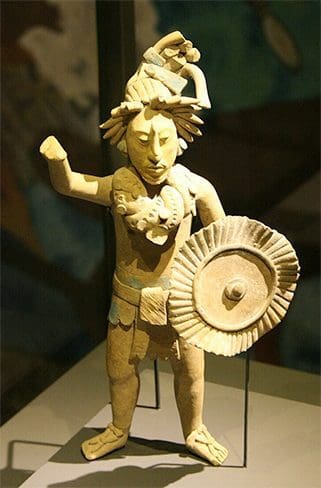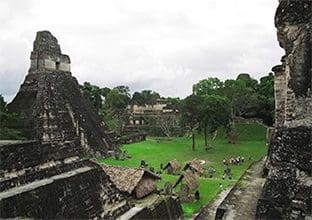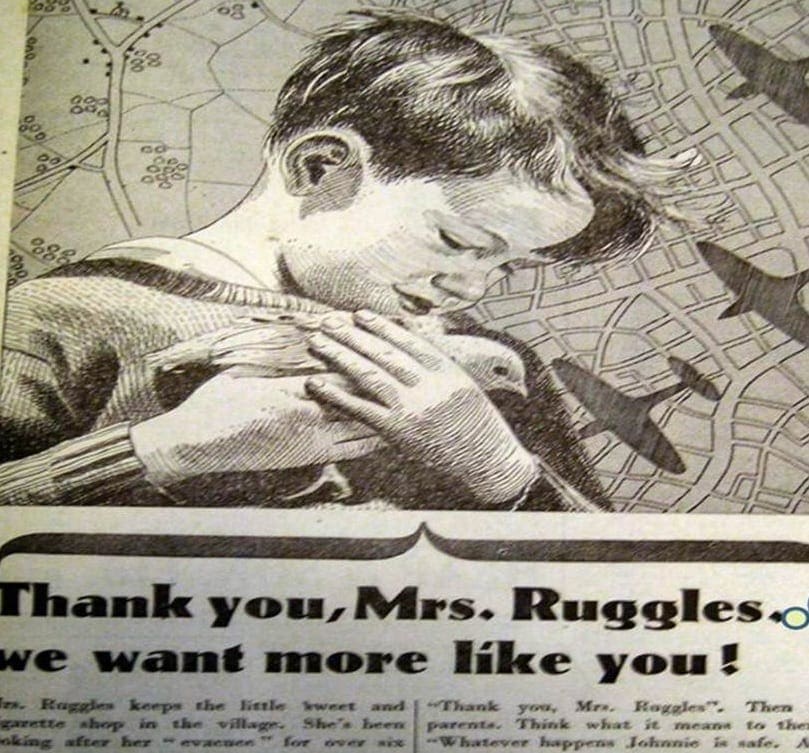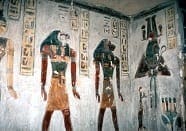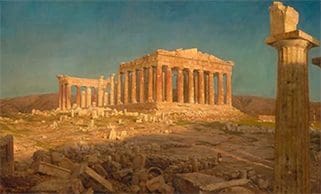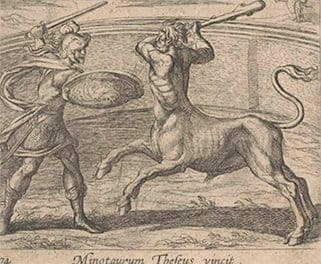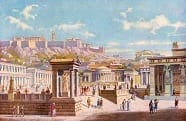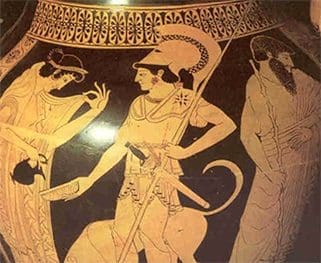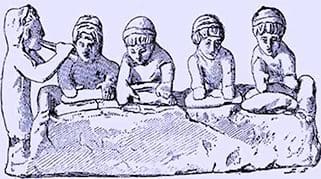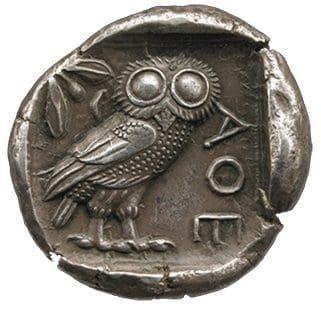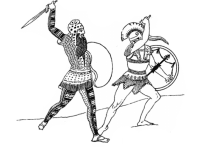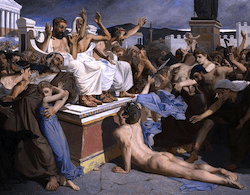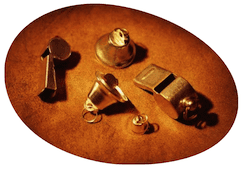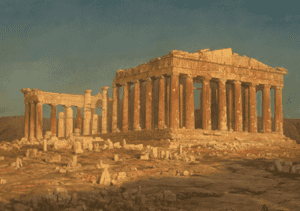Outstanding Lessons and smart tasks
Benin – KQ3 – What can we tell about Benin society at this time from the images and artefacts that have survived?
Using evidence to study Benin This lesson revolves round four principal activities: Fastest Finger First; Mining for meaning, using an…
Read MoreBenin – KQ4 – What changes took place when the European settlers started trading? Case study of one of the Benin bronzes
The first part of this session revolves around the encounter between indigenous Benin people and the European traders. It then…
Read MoreBenin – KQ5 – Why did the Victorians get involved in Benin and what were the effects on the Benin people? SMART TASK
Following an intriguing slow reveal of an interesting Victorian photograph showing the capture of the Oda’s palace in Benin, pupils…
Read MoreBenin – KQ6 – Should the Benin Bronzes be returned? SMART TASK
This lesson is guaranteed to provoke a lively debate. Armed with all the contextual knowledge they need, and stimulated by…
Read MorePlanner for teaching early Islamic civilization at KS2
For many schools this is new topic and one to be taught with particular sensitivity in the 21st century. Try…
Read MoreRoman Britain – KQ2 part 2 – Boudicca’s rebellion: from sequencing to living graph
This KS2 lesson on Roman Britain uses the idea of a living graph to see the ups and downs of…
Read MoreRoman Britain – KQ2 part 2 additional information – Boudica’s rebellion: from sequencing to living graph
The focus on the dramatic story of Boudica is a good opportunity to help pupils to understand why things happen…
Read MoreRoman Britain – KQ2 part 2 additional information – Making sure you are teaching Boudica in the right way.
Let’s start with the name. Boudica is the correct spelling, not Boudicea. Boudica means ‘victory’. Her chariots were light, springy,…
Read MoreRoman Britain – KQ2 part 3 – What image do we have of Boudica today?
Key Stage 2 pupils find Boudica fascinating so this is a good context for exploring the tricky ideas of historical…
Read MoreRoman Britain – KQ3 – How were the Romans able to keep control over such a vast empire?
This lesson offers considerable variety in terms of learning approaches. Pupils work in tug-of-war teams to represent the differently weighted…
Read MoreRoman Britain – KQ4 part 1 – Picture this. Creating a group drawing of a Roman town with all key buildings included in the right place
After re-capping the main features of Iron Age settlements, pupils work collaboratively in role as spies trying to find which…
Read MoreRoman Britain – KQ4 part 2 – Is this another Roman villa?
NB. It has been brought to our attention that the link to the video doesn’t work as the video has…
Read MoreRoman Britain – KQ5 – How can we solve the mystery of why this great 400 year empire suddenly came to an end? Can you make the links?
As this is a brief overview question, without time for much independent research, pupils are introduced to a series of…
Read MoreRoman Britain – KQ6 – What have the Romans ever done for us? Under the cloth
This activity is a good fun way of concluding a study of the Romans. It is called ‘under the cloth’. …
Read MoreOutstanding medium-term planner for Vikings
This KS2 Vikings planner, judged outstanding by an OFSTED history inspector now links to all the fully-resourced outstanding lessons and…
Read MoreVikings – KQ1 – What image do we have of the Vikings?
This two part session gives the topic on the Vikings a really active start. Following an introduction to the Vikings…
Read MoreVikings – KQ2 – Why have the Vikings gained such a bad reputation?
Having explored the nature of the stereotypical Viking image in the first session, it is now time to examine the…
Read MoreVikings – KQ3 – How did the Vikings try to take over the country and how close did they get?
This task encapsulates the struggle between the Anglo-Saxons and the Vikings in an engaging way that really makes pupils think…
Read MoreVikings – KQ3 Additional Resource – How did the Vikings try to take over the country and how close did they get?
This article supports KQ3 The first raids early 790s 1. In 789 three ships from Norway landed in Dorset. The…
Read MoreVikings – KQ4 – How have recent excavations changed our view of the Vikings?
Evidence of Viking occupation Using the Mantle of the Expert approach, pupils help a confused museum curator to write high…
Read MoreVikings – KQ4 Supporting information – The invisible Vikings?
Key Question 4 address the key issue of evidence to support, or contradict, the idea that the Vikings were simply…
Read MoreEarly Islamic civilization – KQ1 – Why should we study the early Islamic civilizations in school today? SMART TASK
One of the misfortunes of a long history of stereotyping and conflict between Islam and the West is that it…
Read MoreEarly Islamic civilization – KQ2 – How was the Islamic civilization able to spread so far, so quickly?
In this demanding but important overview session pupils have to work out from clues the key reasons for Islam’s growth…
Read MoreEarly Islamic civilization – KQ3 – What can we learn about early Islamic civilization from the way they set up the capital at Baghdad?
Pupils are first asked to design a picture showing what Baghdad would have looked like 1,000 years ago. It is…
Read MoreEarly Islamic civilization – KQ4 – What was so special about Baghdad in its Golden Age?
In it’s Golden Age, ten times more people lived in Baghdad than in London. So what was so special about…
Read MoreEarly Islamic civilization – KQ5 – Just how amazing was daily life for rich people in Islamic cities such as Baghdad and Cordoba?
Pupils in role as rich Saxon visitors to 10C Islamic cities, have to capture the essence of these amazingly sophisticated…
Read MoreMayan civilisation – KQ1 – Why do we study the Maya in history at KS2?
Following a brief introduction to locate the Mayan civilization in time and place, stress that we knew very little about…
Read MoreMayan civilisation – KQ2 – Reasons why the Maya empire grew – When so much of the land they lived in was mountain and jungle, how did the Maya manage to become so important?
This is a contentious area and historians cannot be sure so it is a quick overview type lesson. Learning objectives…
Read MoreMayan civilisation – KQ3 – What was everyday life in Mayan civilization? How different was it for rich and poor?
Having been introduced to the nature of Mayan society with its clear hierarchy, and having seen various models and artists’…
Read MoreMayan civilisation – KQ4 – How can we possibly know what was life like for the Mayan people 1,000 years ago? SMART TASK
Introduction This multi-faceted enquiry ranges from scene-setting story telling, and making deductions (using the strategies Zones of Inference and Prove…
Read MoreMayan civilisation – KQ5 – Mayan civilization and human sacrifice
KQ5 If the Maya were so civilized why then did they carry out human sacrifice? SMART TASK Please note that…
Read MoreMayan civilisation – KQ5 additional information – Ideas to support your teaching of the Maya religious practices
How will you present cultural practices that differ from our own, such as human sacrifice, as practised by the Maya?…
Read MoreMayan civilisation – KQ6 – Why did the Mayan empire decline? How can we solve the riddle of why the Mayan empire ended so quickly?
When there are apparently 88 competing theories about the end of the Mayan civilization where do pupils start? Well, having…
Read MoreY6 pupils play film detectives to learn about government propaganda SMART TASK
Using a short Ministry of Information film, which last just 8 minutes and can be accessed online here (please note…
Read MoreMayan civilisation – KQ6 – Additional information – Why did 90% of Maya ‘disappear’ around 900AD?
This article comes largely from the Historical Association website https://www.history.org.uk/primary/categories/934/module/8747/resource-sharing-hub-key-stage-2/9839/non-european-society Around 900AD, most of the Maya disappeared from the historical…
Read MoreKS2 Islam -Today is anniversary of start of Building of Baghdad
If you are teaching Islamic civilization at KS2 you might like to watch a short podcast which looks at the start…
Read MoreBrief 10 question diagnostic assessment task for KS2 Ancient Egypt
Pupils have to answer 10 fairly open ended questions for which answers are provided reflecting the knowledge and understanding outlined…
Read MorePlanning for teaching Ancient Greece KS2
The main foci throughout this planner are: Ideas, Beliefs, Attitudes (especially the role of women); Way of life (contrasting Athens…
Read MoreAncient Greece – KQ1 Part 1 – How can we possibly know so much about the Ancient Greeks who lived over 2,500 years ago?
Any study of ancient Greek society must begin with an appreciation of the physical features of Greece. Landform and climate…
Read MoreAncient Greece – KQ1 Part 2 – Theseus and the Minotaur: Is there any evidence for the legend?
This KS2 smart task places pupils in the role of detectives trying to prove that the legend of Theseus and…
Read MoreAncient Greece – KQ1 Part 2 – Background information
This short article provides some background information to support your teaching of Key Question 1 Part 2. Set the lesson…
Read MoreAncient Greece – KQ2 Part 1 – What can we work out about everyday life in Ancient Athens?
There are three distinct parts to Key Question 2 but each centrally based around the need for pupils to use…
Read MoreAncient Greece – KQ2 Part 2 – Ancient Greek vases: the answer lies on the pot
This KS2 history lesson, in which the decoration of a Greek pot is slowly revealed, features two cracking activities designed…
Read MoreAncient Greece – KQ2 Part 3 – What was life like for women in Ancient Greece?
This simple lesson on life for women in Ancient Greece, based around a PowerPoint presentation, makes an excellent contribution to…
Read MoreAncient Greece – KQ3 Part 1 – Why was Athens able to be so strong in the 5th and 6th century BC?
As well as recapping Athens’ natural advantages (coastline to trade by sea, expand into colonies and capture slaves) and their…
Read MoreAncient Greece – KQ3 Part 2 – The Battle of Marathon. A history mystery
This lesson on the Battle of Marathon makes a major contribution to pupils’ thinking skills. They are presented with a…
Read MoreAncient Greece – KQ3 Part 3 – comparing six contrasting interpretations of the original Marathon run
Interesting session comparing six contrasting interpretations of the original Marathon run, followed by analysis of which to believe and understanding…
Read MoreAncient Greece – KQ3 Part 3 – Additional Information – 10 Things Your Pupils Need To Know About Pheidippides ’Marathon’ Run
1. Herodotus makes no mention of the run from Marathon to Athens The principal source for the battle of Marathon…
Read MoreAncient Greece – KQ3 Part 4 – Consequences of the battle of Marathon: Bells and whistles – Smart task
Really fun lesson called bells and whistles in which team have to make the appropriate sound depending on whether the…
Read MoreAncient Greece – KQ4 Part 1 – role play on building the Parthenon
This full lesson is a role-play activity looking at Greek democracy in the context of the rebuilding of the Parthenon….
Read More
